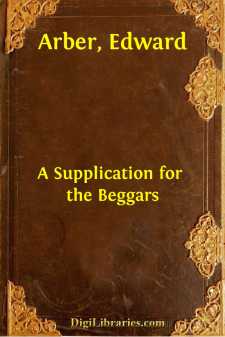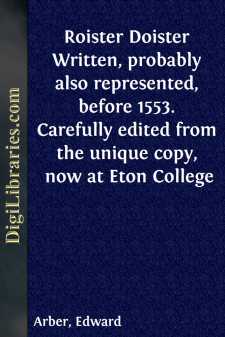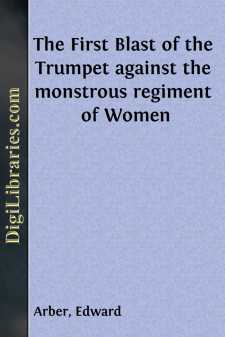Categories
- Antiques & Collectibles 13
- Architecture 36
- Art 48
- Bibles 22
- Biography & Autobiography 813
- Body, Mind & Spirit 142
- Business & Economics 28
- Children's Books 14
- Children's Fiction 11
- Computers 4
- Cooking 94
- Crafts & Hobbies 4
- Drama 346
- Education 46
- Family & Relationships 57
- Fiction 11829
- Games 19
- Gardening 17
- Health & Fitness 34
- History 1377
- House & Home 1
- Humor 147
- Juvenile Fiction 1873
- Juvenile Nonfiction 202
- Language Arts & Disciplines 88
- Law 16
- Literary Collections 686
- Literary Criticism 179
- Mathematics 13
- Medical 41
- Music 40
- Nature 179
- Non-Classifiable 1768
- Performing Arts 7
- Periodicals 1453
- Philosophy 64
- Photography 2
- Poetry 896
- Political Science 203
- Psychology 42
- Reference 154
- Religion 513
- Science 126
- Self-Help 84
- Social Science 81
- Sports & Recreation 34
- Study Aids 3
- Technology & Engineering 59
- Transportation 23
- Travel 463
- True Crime 29
A Supplication for the Beggars
by: Edward Arber
Description:
Excerpt
INTRODUCTION.
ir Thomas More, who at that time was but Chancellor of the Duchy of Lancaster, was made Lord Chancellor in the room of Cardinal Wolsey on Sunday, the 24th of October 1529.
The following undated work—the second of his controversial ones—was therefore written, printed and published prior to that day, and while as yet he held the lower dignity of the ducal Chancellorship.
The supplycacyon of soulys Made by syr Thomas More knyght councellour to our souerayn lorde the Kynge and chauncellour of hys Duchy of Lancaster.
Agaynst the supplycacyon of beggars.
At fol. xx. of this work occurs the following important passage, which, while crediting the Reformers with a greater science in attack, and a more far-reaching design in their writings than they actually possessed: fixes with precision the year of the first distribution in England of Simon Fish’s Supplicacyon for the Beggers, and with that its sequence in our early Protestant printed literature—
For the techyng and prechyng of all whych thyngys / thys beggers proctour or rather the dyuels proctour with other beggers that la[c]k grace and nether beg nor lo[o]ke for none: bere all thys theyr malyce and wrathe to the churche of C[h]ryste. And seynge there ys no way for attaynyng theyr entent but one of the twayn / yat ys to wyt eyther playnly to wryte agaynst the fayth and the sacramentys (wheryn yf they gat them credence and obtaynyd / they then se[e] well the church must nedys fall therwyth) or els to labour agaynst the church alone / and get the clergye dystroyd / whereuppon they parceyue well that the fayth and sacramentes wo[u]ld not fayle to decay: they parceyuyng thys / haue therfore furste assayd the furst way all redy / sendyng forth Tyndals translacyon of the new testament in such wyse handled as yt shuld haue bene the fountayn and well spryng of all theyr hole heresyes. For he had corrupted and purposely changed in many placys the text / wyth such wordys as he myght make yt seme to the vnlerned people / that the scripture affirmed theyr heresyes it selfe. Then cam sone after out in prynt the dyaloge of freere Roy and frere Hyerome / betwene ye father and ye sonne [Preface dated Argentine (Strasburg), 31 August, 1527] agaynst ye sacrament of ye aulter: and the blasphemouse boke entytled the beryeng of the masse [i.e. Rede me and be not wroth / printed at Strasburg early in 1528]. Then cam forth after Tyndals wykkyd boke of Mammona [Dated Marburg, 8 May 1528] / and after that his more wykkyd boke of obydyence [Dated Marburg, 2 October 1528]. In whych bokys afore specyfyed they go forth playnly agaynst the fayth and holy sacramentis of Crystys church / and most especyally agaynst the blyssed sacrament of ye aulter / wyth as vylanous wordes as the wre[t]ches cou[l]d deuyse. But when they haue perceuyd by experyence yat good people abhorred theyr abomynable bokes: then they beyng therby lerned yat the furst way was not ye best for ye furtherance of theyr purpose / haue now determined them selfe to assay the secunde way / that ys to witte yat forberynge to wryte so openly and dyrectly agaynste all the fayth and the sacramentys as good crysten men coulde not abyde the redyng / they wolde / wyth lyttell towchyng of theyre other heresyes / make one boke specially agaynst ye church and loke how that wold proue....




